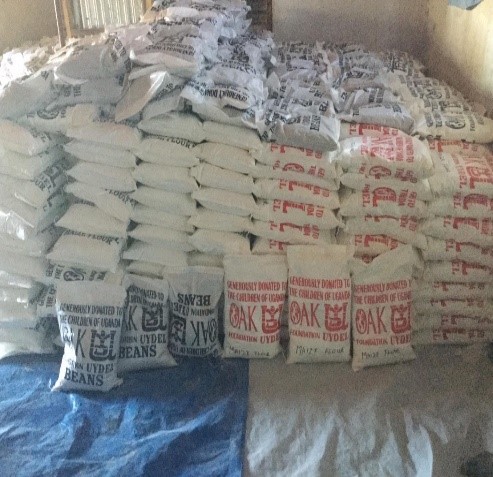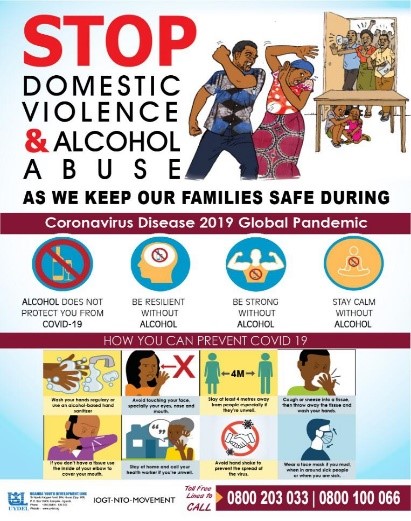UYDEL RESPONSE TOWARDS GENDER BASED VIOLENCE AND ALCOHOL ABUSE DURING THE LOCKDOWN IN UGANDA
Background:
The COVID 19 pandemic globally has had a devastating negative impact especially in low income countries like Uganda who have fragile health system and can’t manage many cases. Governments declared lockdown and everything stood at stand still for over 75 days. Children and their families depending on small informal business closed, capital eaten up and didn’t know what to happen next.
Our entire 9 Drop in centers/safe spaces were closed and over 2000 slum youth and poor children scattered and a few went home. We received distress calls from some our young people we serve daily in our drop in centers that life had become unbearable, there was a lot of hunger, and some violence was inflicted on children. It is estimated that another 3 million Ugandans are expected to fall into abject poverty as a result increasing the number to 23 million people.
Children trying to cope in the pandemic were far worse off and some taken play by the exploiters in the name of giving food (exchange for sex). There was a spike and increase of sexual exploitation and abuse of children in the informal settlement and slums. Gladly we requested for support from University of California Los Angeles (UCLA) through Dr. Mary Jane Rotheram and OAK Foundation, who responded positively to this emergency to assist and help over 1500 children in Kampala city who were scattered in the city. UYDEL received USD $ 25,000 from OAK Foundation towards support for procurement and distribution of food relief and other basic necessities to young people to contribute to their welfare and also prevent infections of COVID 19 in the communities.
UYDEL Response: With support from our donors, we have put together hygiene basket composed of wash stands with buckets, soap and Dettol, with informational brochures that were distributed through our networks and with our partners in urban communities, and in support of local government leadership. We are mobilizing and supporting youth in our networks who know how to sew to make artisanal face masks that can be made available to the wider community on sale at reasonable cost.
UYDEL also tapped into the COVID 19 response fund under the EASY U25 Project to provide funds worth 96,726,000/= to cater for Foods and emergency support for vulnerable slum youth and their families under the project, Personal Protective Equipment (PPE) and support to Slum youth and UYDEL Staff while at the drop-in centers and Secretariat and Provide Foods and emergency support for vulnerable slum youth and their families under the project.

In these few weeks we have seen families living in extreme poverty being hit even harder by the crisis as prices for basic food items and supplies skyrocket. We are lobbying our networks for support and once this is realised then we plan to provide these families with additional cash subsidies to help keep food on the table. For homeless people and children this is worse. The UYDEL communication and M&E team has worked on critical messages to share as the risk for violence and exploitation of women and children - especially girls – increases significantly in times of crisis. These messages will be shared on community radio, on Whatsapp networks, by text messaging and other ways UYDEL usually communicate.

Conclusion: This has so far been a successful activity since many young people have benefitted from the relief items. We still have some leftover food to reach some more young people. However, many numbers of youths are still unreached and they need food now since the lock down has been extended for another 21 days. Many will not start immediately any enterprises to improve their survival and coping. We anticipate many parents will not be able to support their children in the immediate future and many children are likely to be enticed into sexual exploitation, homelessness ness.
The way forward goals are to reach 1,300 (900 girls and 400 males) at UYDEL training centers and 9 city youth drop in centers. Vulnerable poor hit by pandemic as a short term measure to reduce trauma, dependency, sexual exploitation, trafficking, and violence and encourage recovery and also to build resilience and social capital for full recovery and reduce trauma and sexual exploitation.